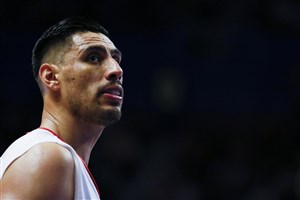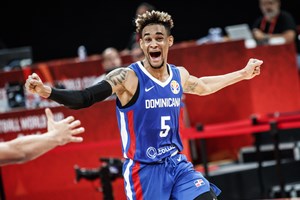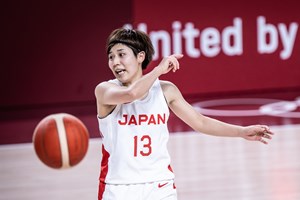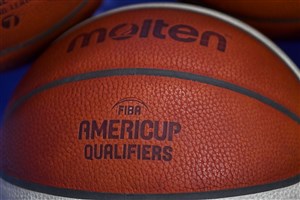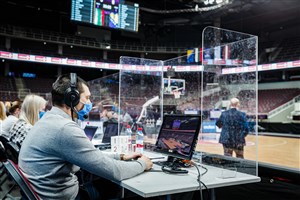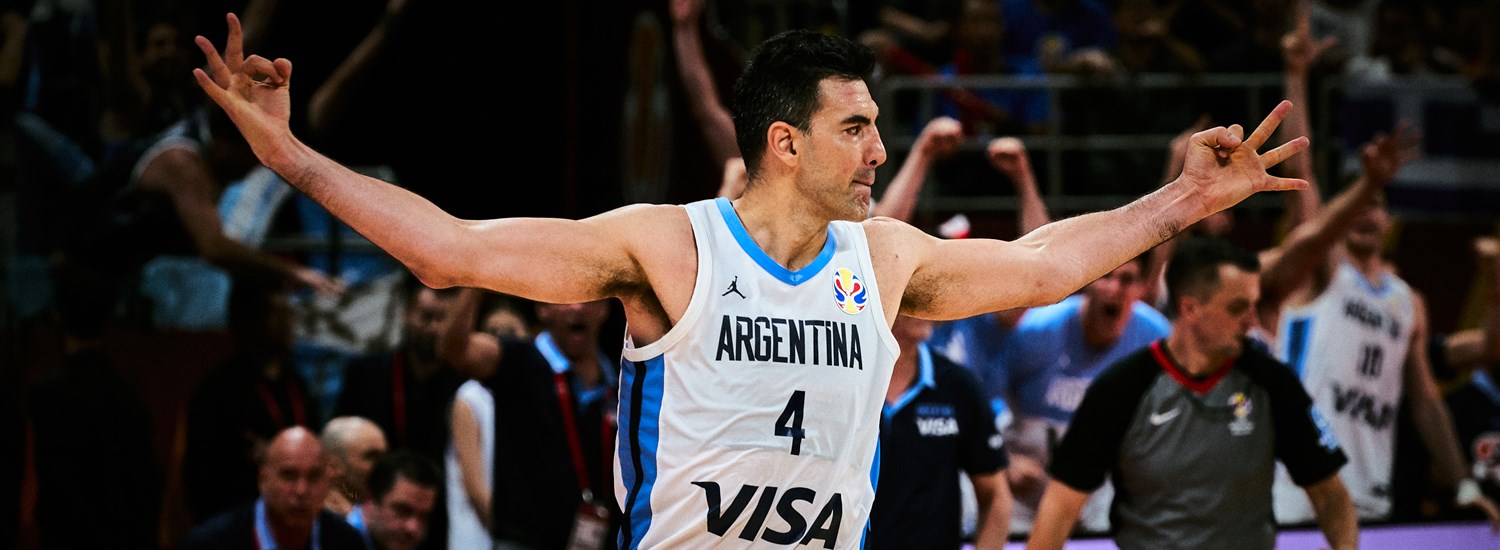
Who's the best player in the history of the AmeriCup?
The list of out-of-this-world players that showcased their talents from the first Tournament of the Americas in 1980 up until the FIBA AmeriCup 2017 is as long as it is impressive. Going through videos, archives, and statistics could give us the necessary clues to build diverse opinions. This time around, the virtual roundtable includes great players from different countries on our continent. Who, for them, is the best player in the history of the AmeriCup?
Argentine small forward Andrés Nocioni, 2001 and 2011 champion of the Americas who also played in the 1999, 2003, and 2015 editions, select one of his teammates: “Without any doubts I choose Scola. Maybe I'm not very objective because he's my friend and we shared a lot of things, but the numbers back me up. Luis is the most determining player in the history of the championship due to his commitment with the Argentine jersey – he’s participated in nine editions. Plus, he's the highest scorer in history, and he received four MVP prizes."
Brazilian small forward Guilherme Giovannoni, with eight back-to-back appearances from 2001 to 2015, says: "From 1980 to 2017 is a very long period. We see names like Oscar, Marcel, Piculín Ortiz, Héctor Campana, Juan Espil, and many more. But I'm staying with a recent figure, maybe because I had to face him a lot: Luis Scola. Maybe because of his individual achievements throughout his career, because he was always there, because of his performance, and the titles.”
Paraguayan point guard Javier Martínez, a star of his national team in the 2011 edition, believes that it's "a complicated decision. With what I saw toward the end of his career and then on the internet, Oscar Schmidt is one of my favorites. Mainly because in his time, the NBA franchises didn't allow foreign players to represent their team, and he renounced the NBA to keep his commitment to Brazil. However, and because he's recent, I choose Luis Scola. (I choose him) because of his loyalty to the Argentine jersey and what he taught to his old and current teammates. His quality and statistics speak for themselves, but the mark he left and will leave is unparalleled. I played many years in Argentina, and I could see the impact of the Golden Generation and Luisfa's consistency had a lot to do with that. Beyond his achievements, the impact he had on his peers – and in my case, the admiration – is enormous.”
Venezuelan small forward Víctor David Díaz, who represented his country in the 1992, 1993, 1995, 1997, 1999, 2001, 2003, and 2005 FIBA Americas, can’t seem to decide: “I can't stay with just one, so I'm picking two: Oscar Schmidt, and Manu Ginóbili. Just because they did whatever they wanted every time they played in an Americas tournament.”
Uruguayan point guard Marcelo Capalbo, who attended the 1992, 1993, 1995, 1997 and 2001 editions is absolutely certain of whom he’d choose: “Although in the 80s and 90s there are many players that portrayed an outstanding level throughout the continent, without a doubt, I pick Manu Ginóbili. Because of everything he achieved step by step, for his professionalism, for his competitiveness, and his ability to adapt. And, above all, because he was an example for a lot of kids. It's undeniable; he has nine lives more than the rest. After him, it’s Luis Scola.”
Francisco García, Dominican small forward that played with his national team in the 2005, 2009, 2011, 2013, and 2015 FIBA Americas, shared: “I choose Luis Scola because he's consistent with playing for his country. He took Argentina to all great events, thanks to his performance. Scola was an Olympic champion in 2004 and won second place in the World Cup in 2002 and 2019. He raked in the gold medals throughout his spotless career. He's a role model both as a player and as a person.”
Panamanian point guard Jair Peralta, who was in Santo Domingo in 2005 during the historic qualification to the 2006 World Cup in Japan, shares his point of view: “The most important player for Panama is Michael Hicks, because of his leadership as a captain. He's an example in and out of the court, and he wore our national jersey for more than 20 years. If we're talking about the entire continent, it's hard to pick just one, because there are great stars like Víctor David Díaz, Leandro Barbosa, Jack Michael Martínez, Manu Ginóbili, and Oscar Schmidt. Of those, I'll pick Oscar, who was one of our first idols and opened the doors of Europe to a lot of Latin American players. Aside from his glorious participation in FIBA Americas tournaments, he was the star of breaking the barrier when Brazil defeated the United States in the Pan American Games. From that point on, a lot of us realized that they weren’t invincible.”
Mexican center Gustavo Ayón, 2013 champion, and MVP, who also played in the 2007, 2009, and 2015 editions, went straight to the point: “The best is Luis Scola, because he's the player with the most participations who’s stayed at an optimal level.”
Other iconic players that weren’t mentioned were: Michael Jordan, Magic Johnson, Larry Bird, Kobe Bryant, and LeBron James (USA); Steve Nash, Jay Triano, and Leo Rautins (Canada); Marquinhos Abdala Leite, and Marcelinho Machado (Brazil); José Vargas, Franklin Western, Luis Felipe López, and Al Horford (Dominican Republic); Mario Butler, and Rolando Frazier (Panama); Ruperto Herrera, and Lázaro Borrell (Cuba); Arturo Guerrero, and Rafael Palomar (Mexico); Raymond Dalmau, Georgie Torres, Mario Morales, Fico López, Ramón Rivas, Jerome Mincy, Eddie Casiano, José Juan Barea, and Carlos Arroyo (Puerto Rico); Hebert Núñez, Carlos Peinado, Horacio López, Wilfredo Ruiz, Esteban Batista, and Leandro García Morales (Uruguay); Carlos Raffaelli, Miguel Cortijo, Marcelo Milanesio, Pablo Prigioni, Carlos Delfino, and Facundo Campazzo (Argentina); Gabriel Estaba, and Carl Herrera (Venezuela) and so many more stars that shone brightly in the top tournament of the Americas.
FIBA
